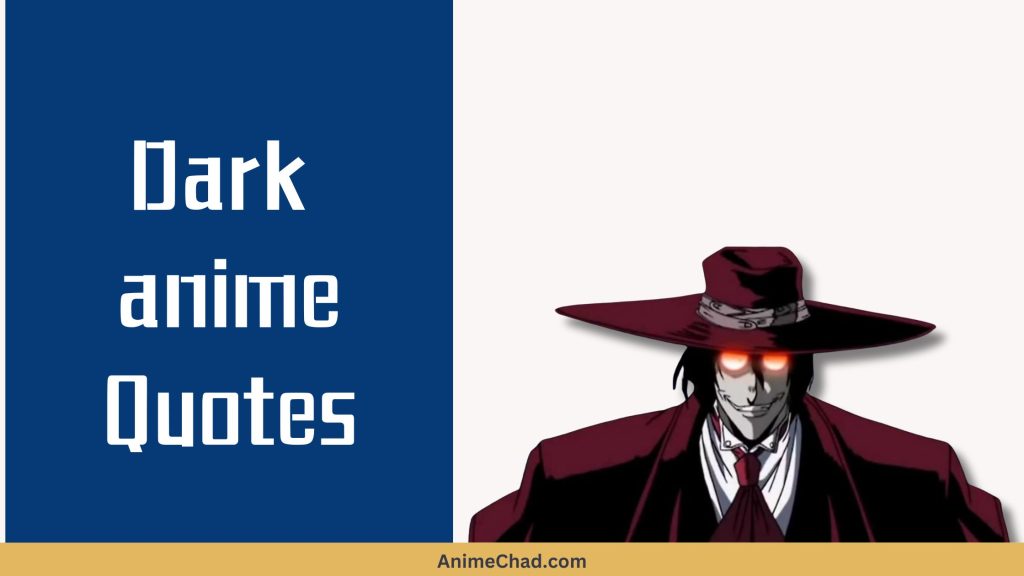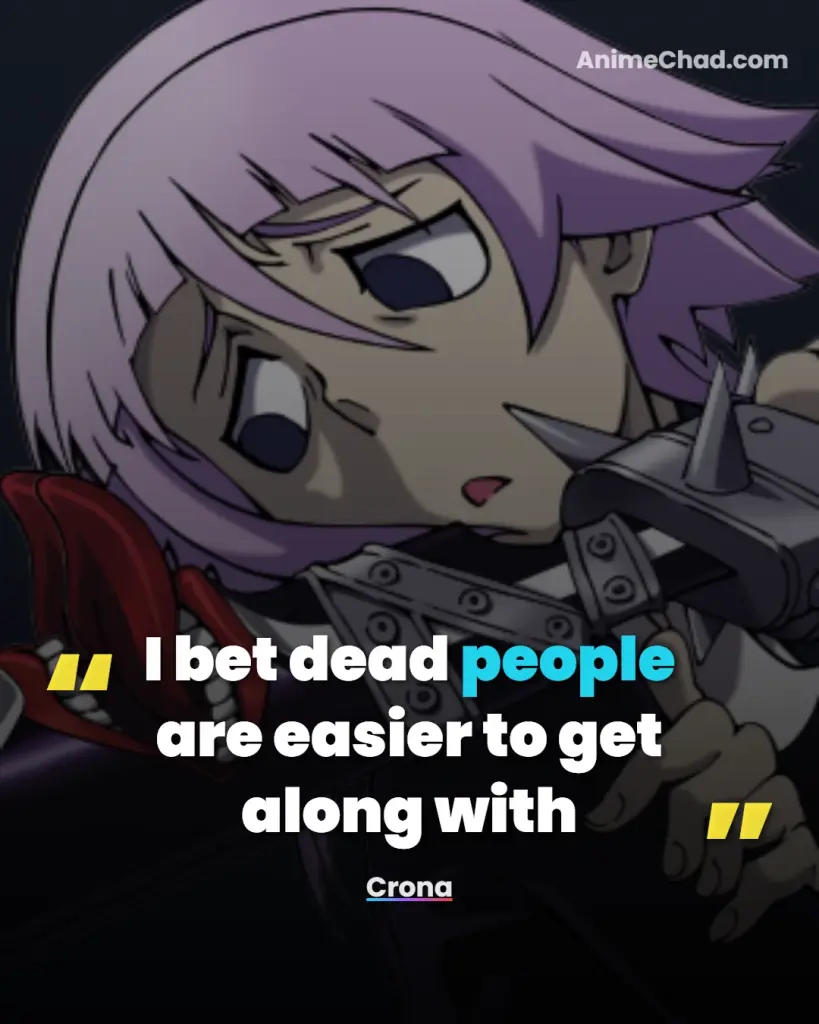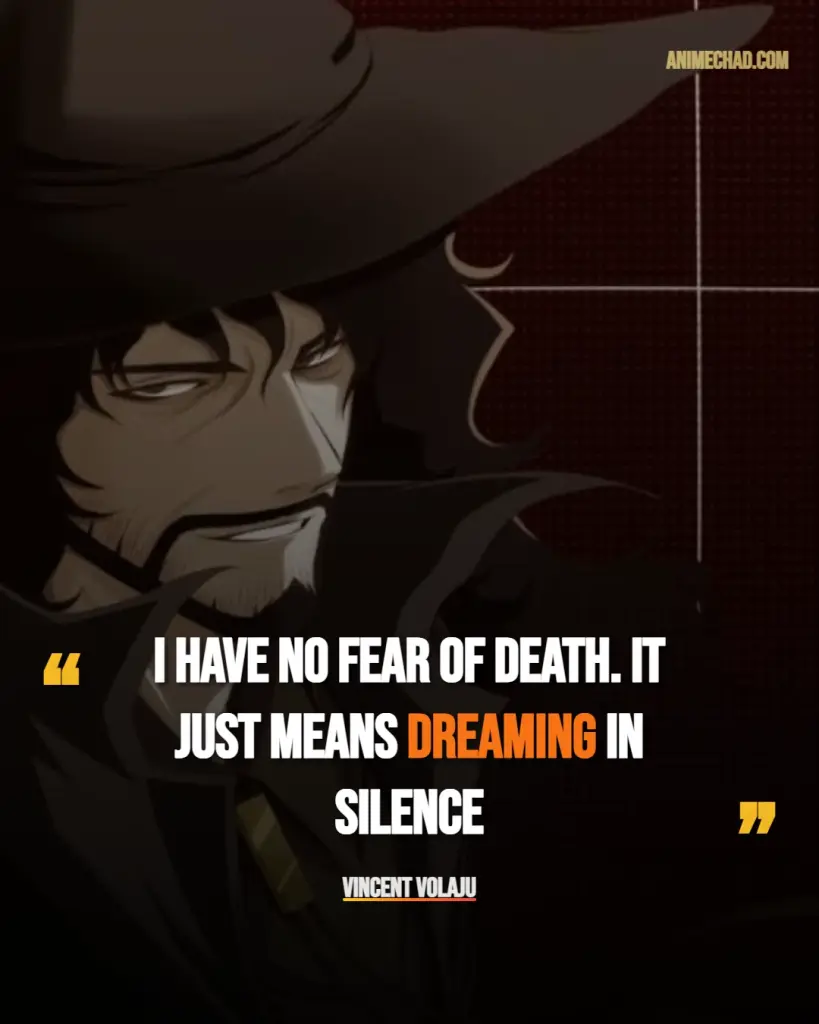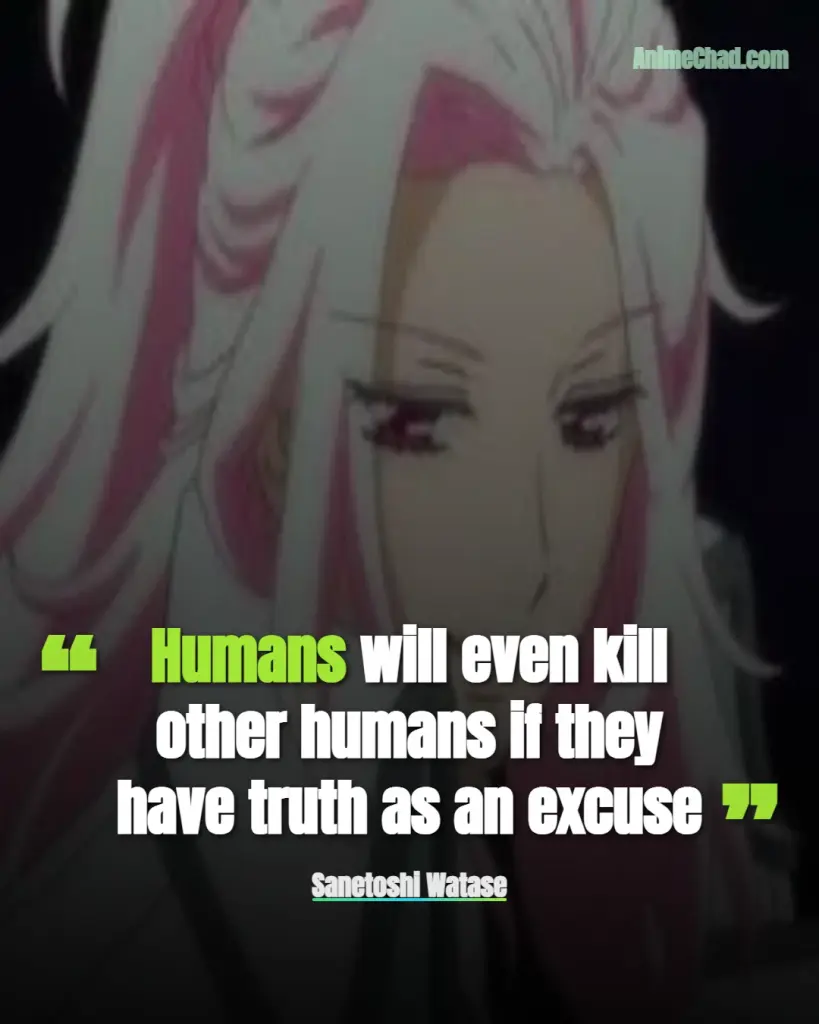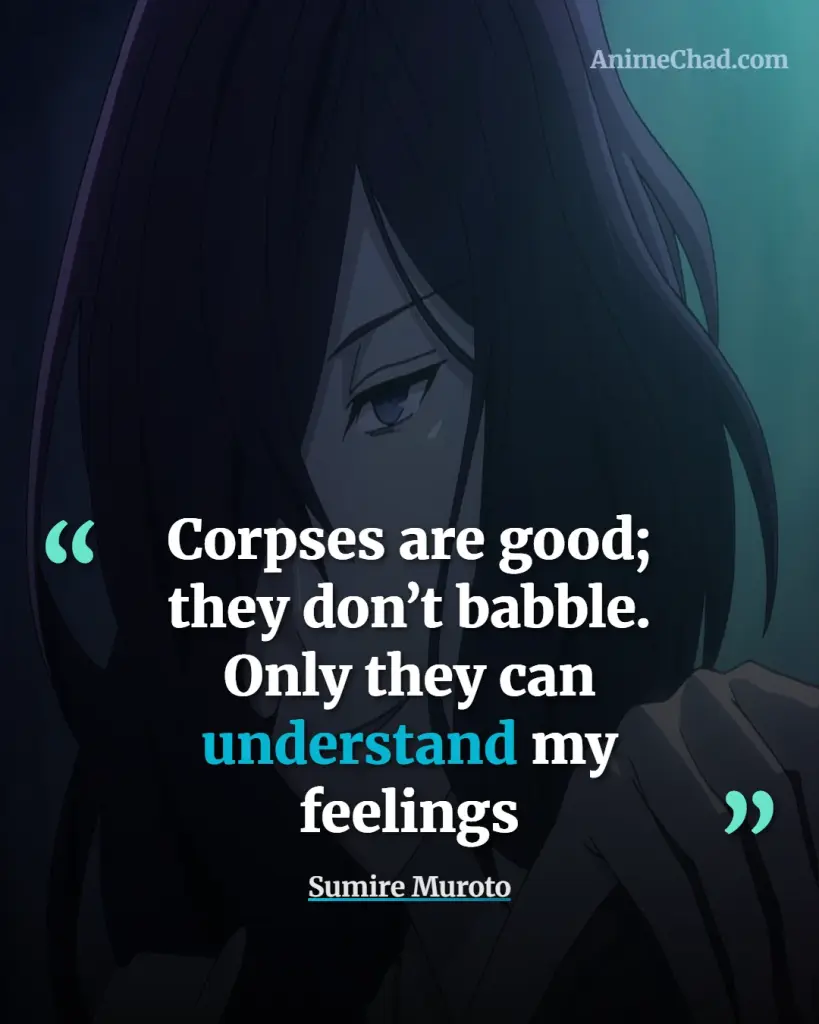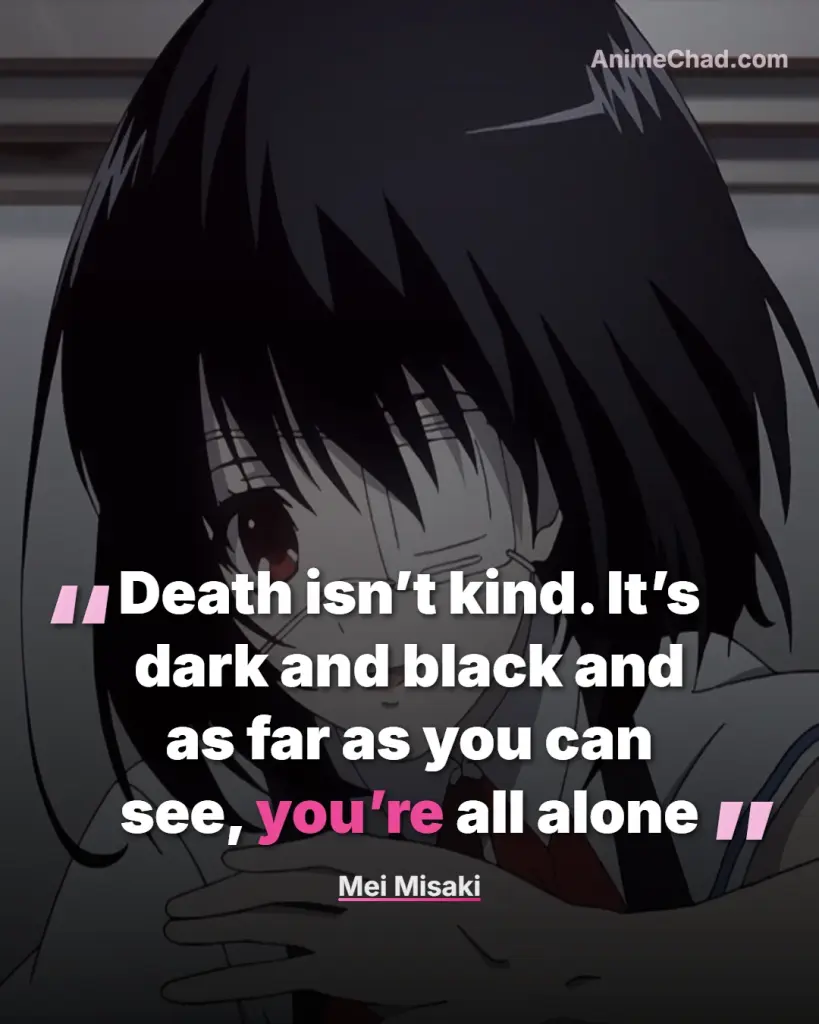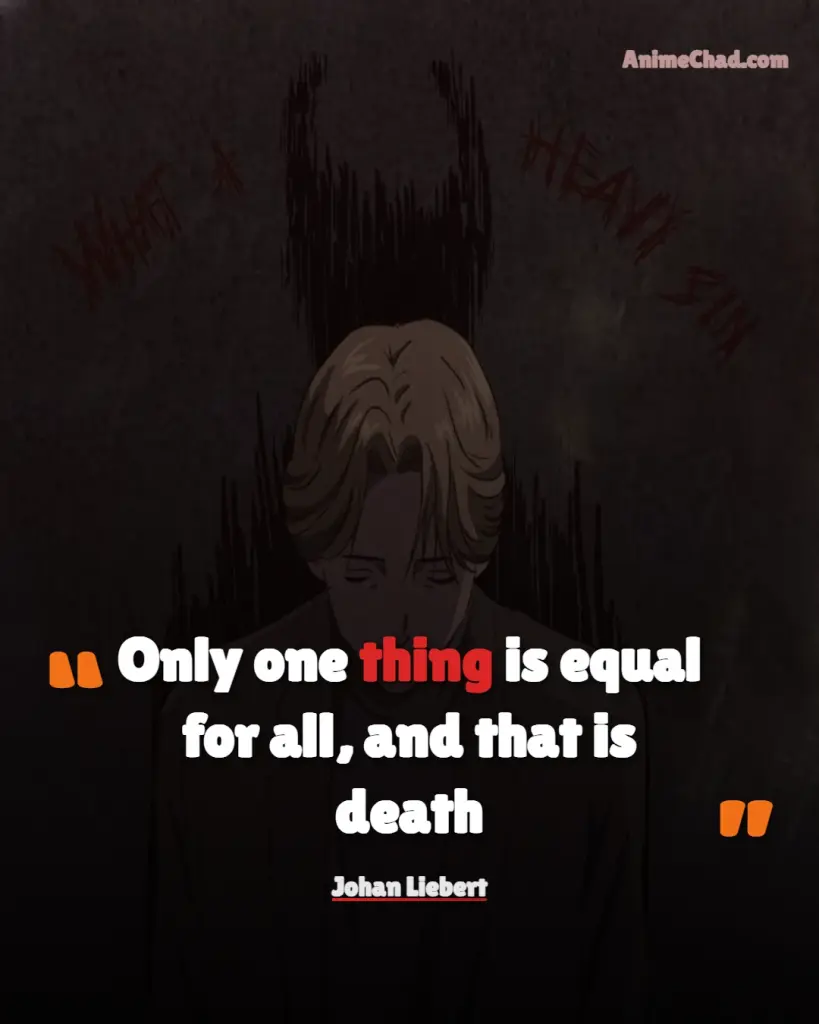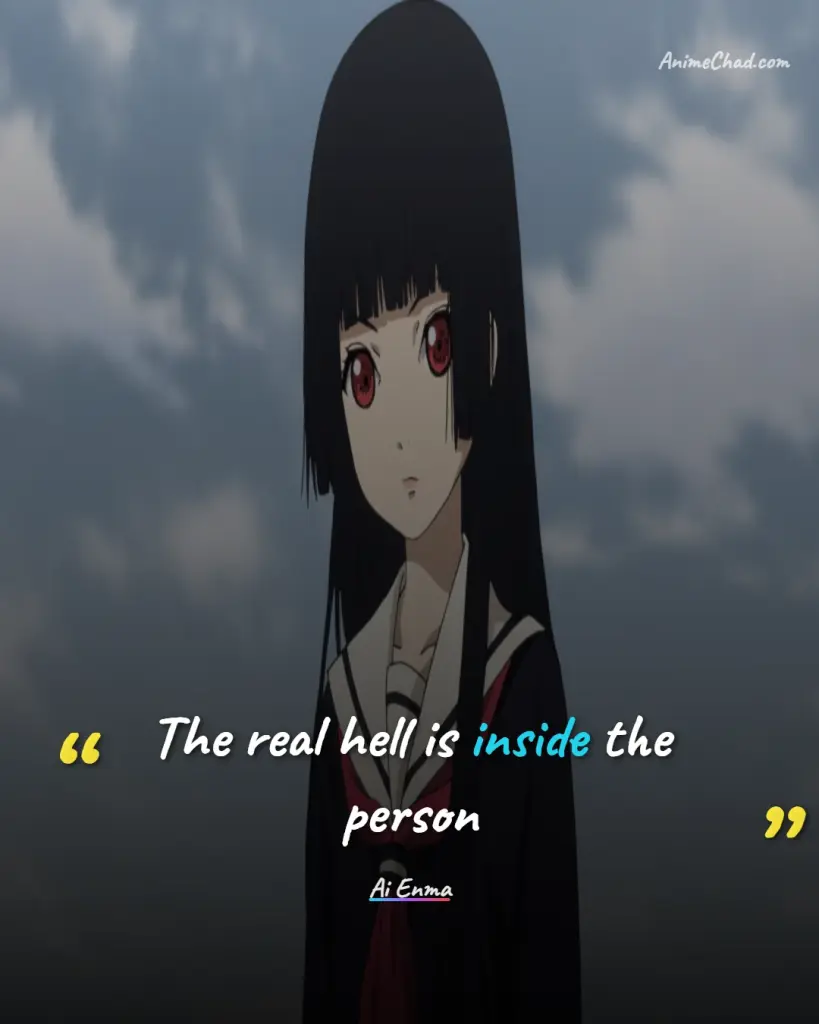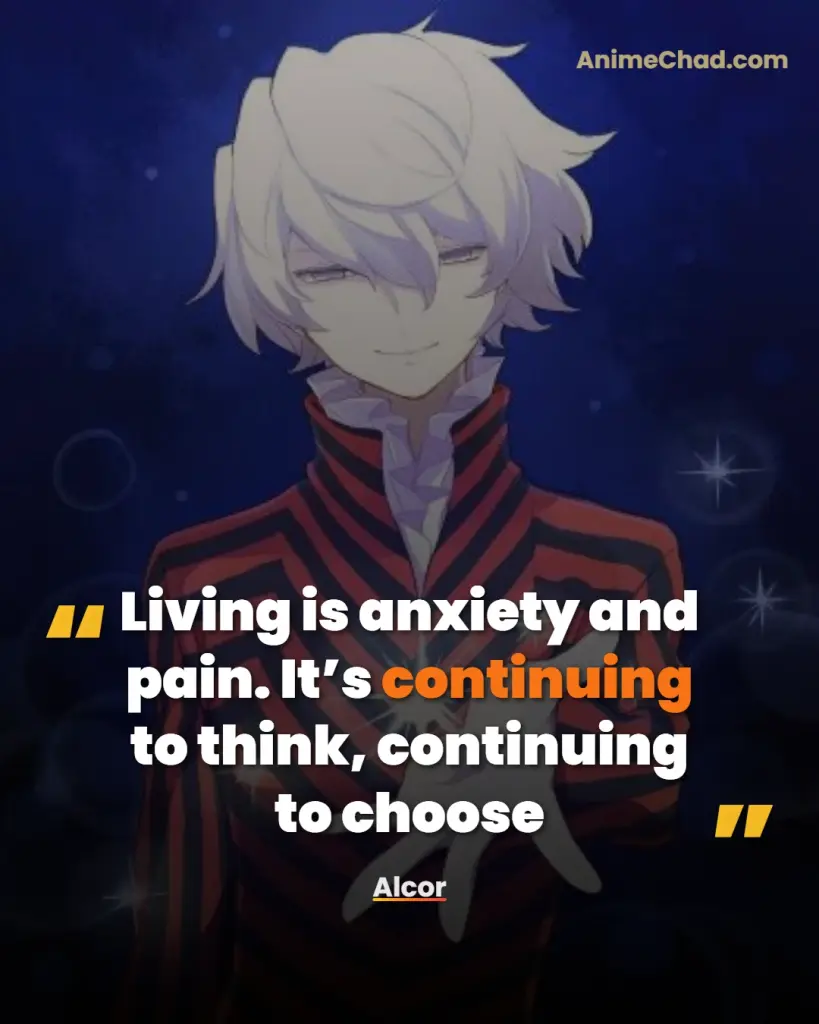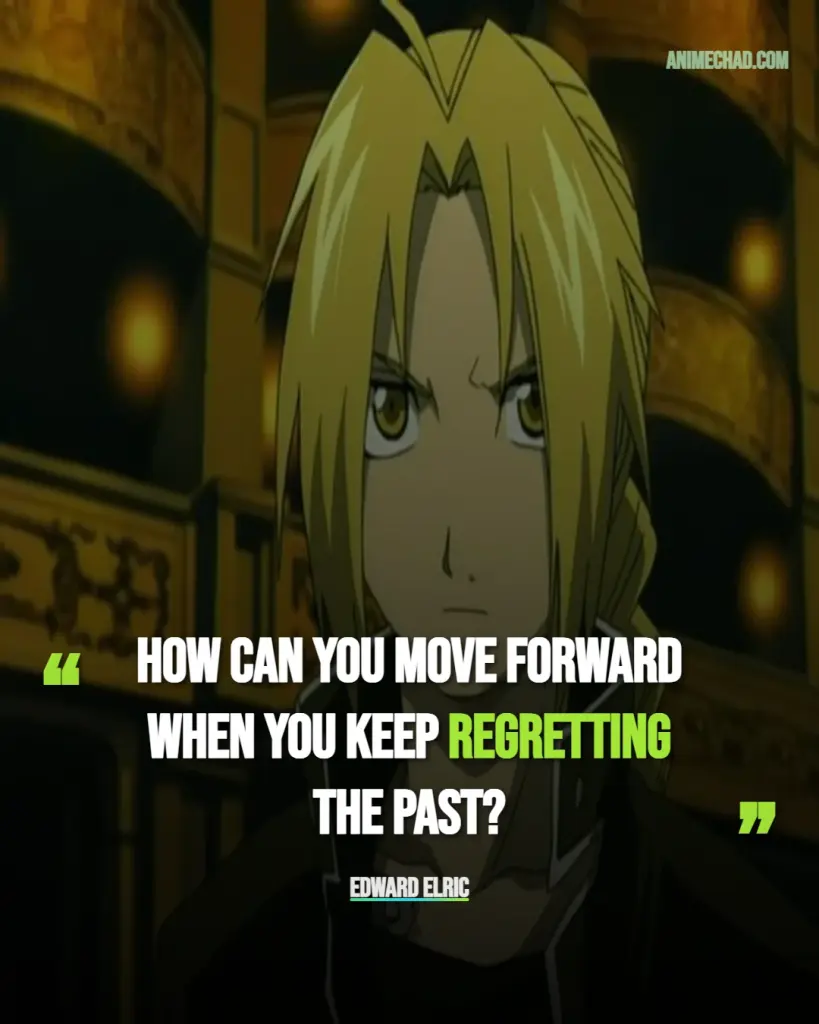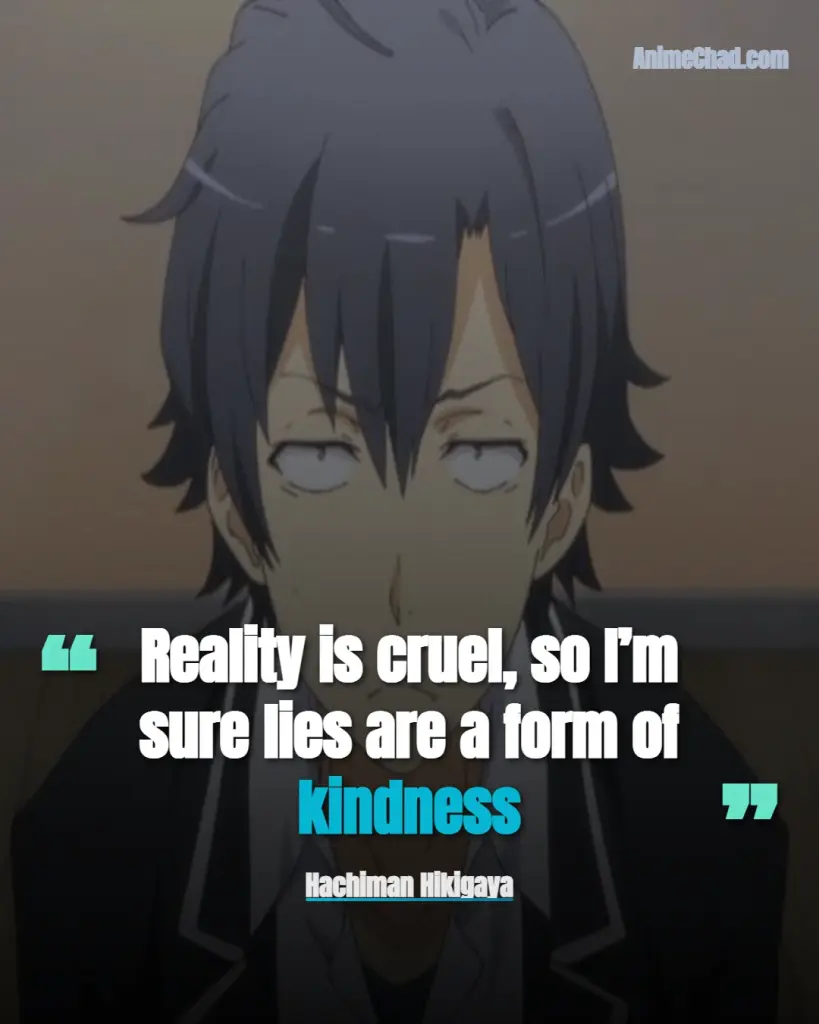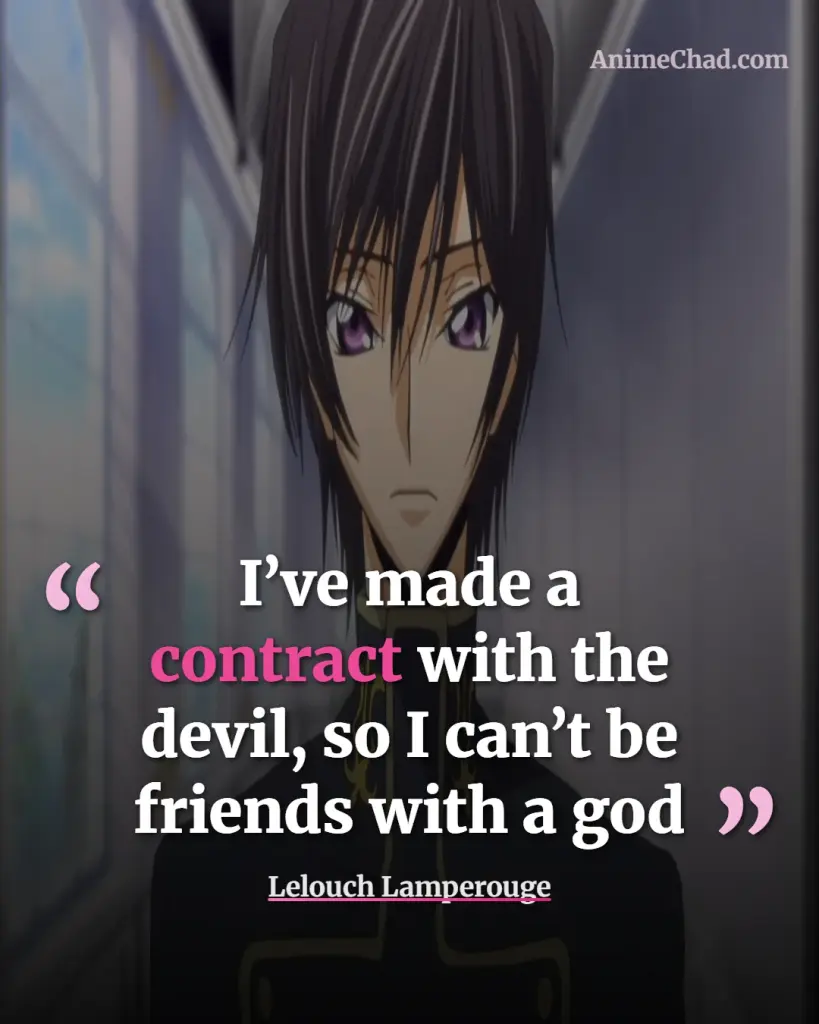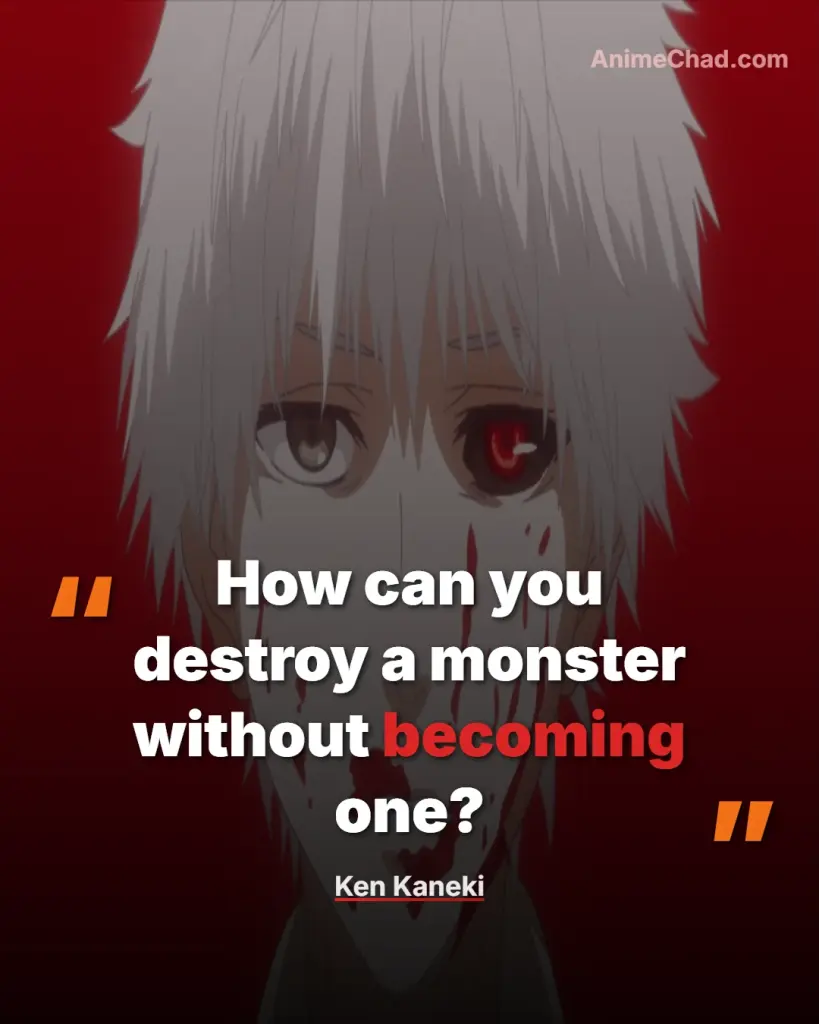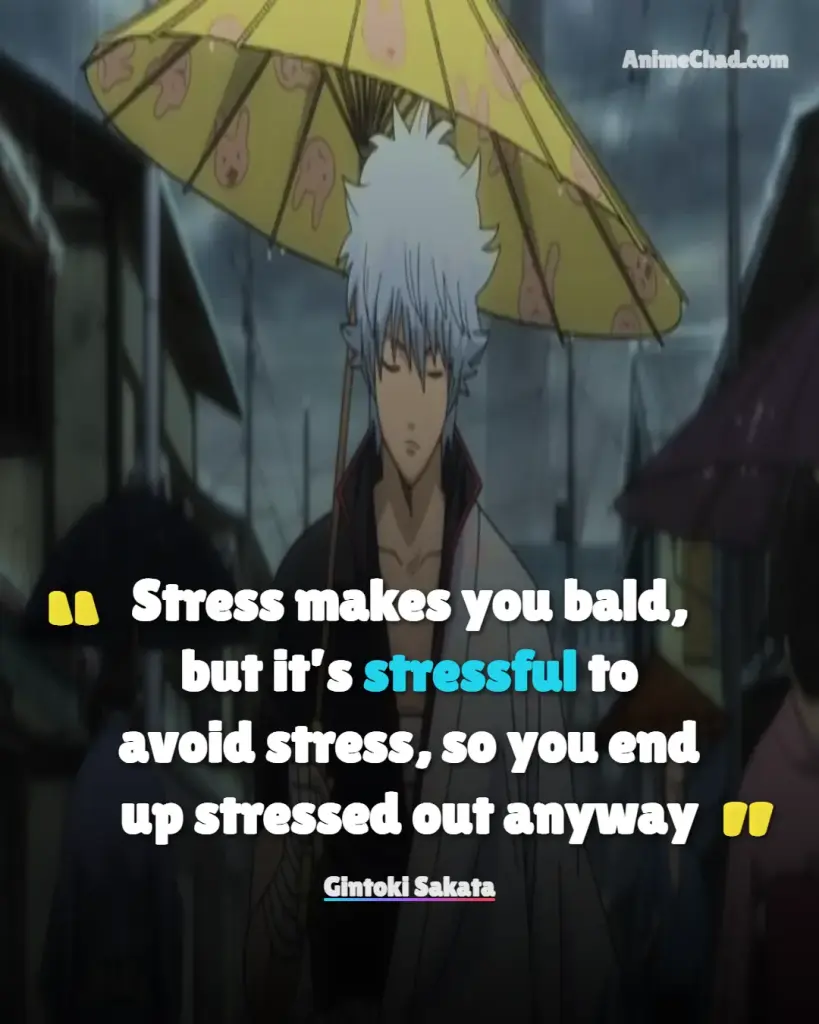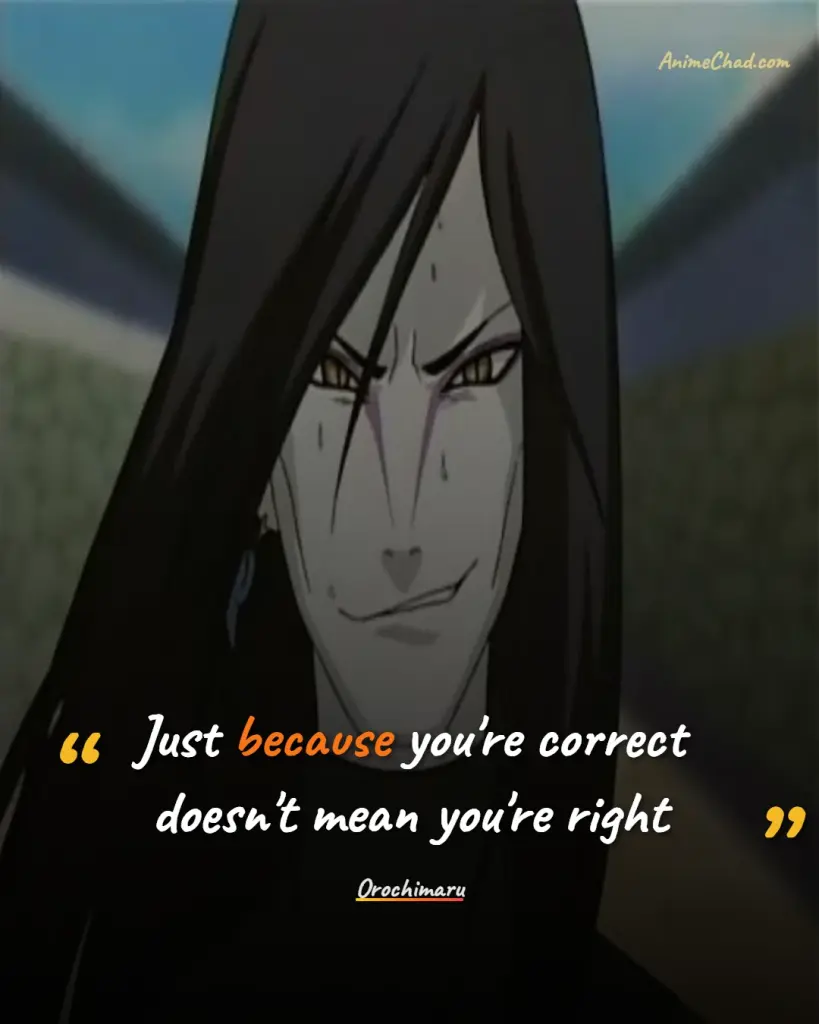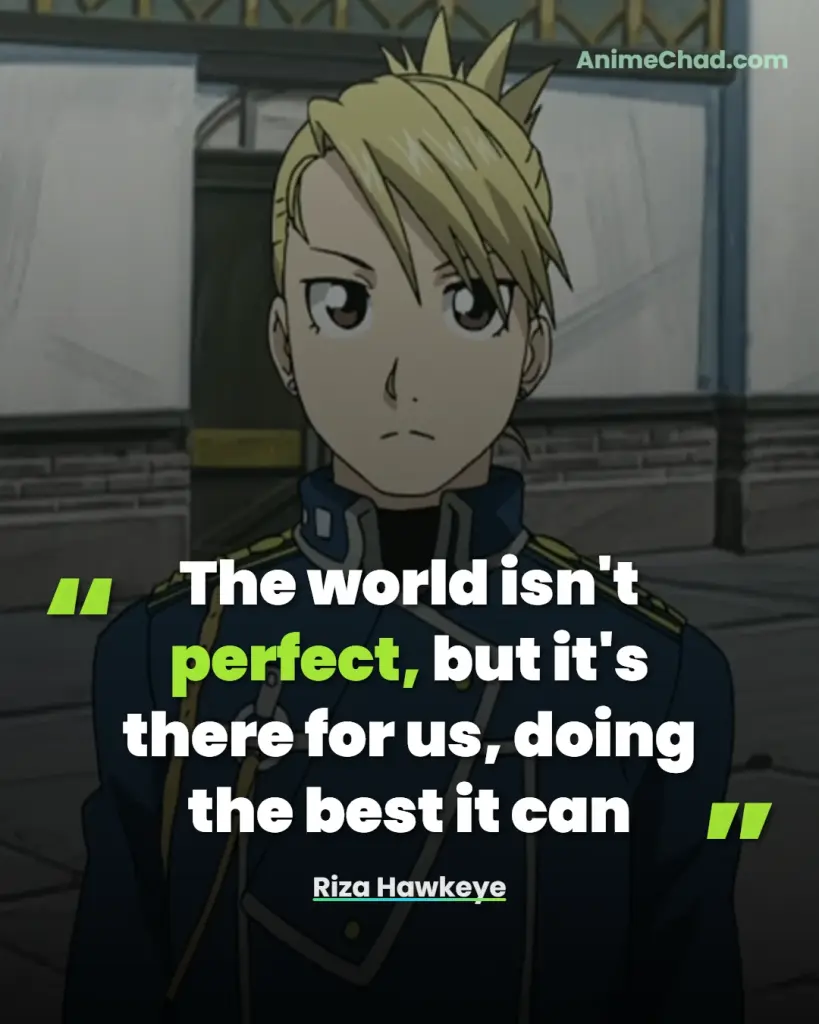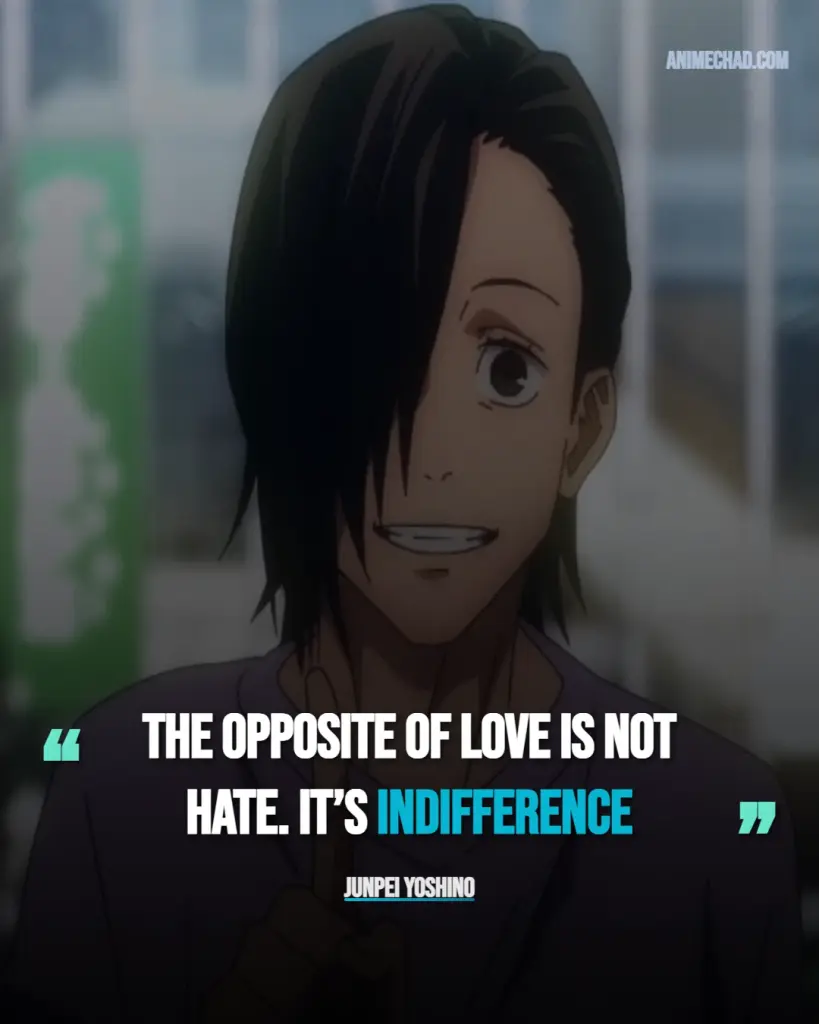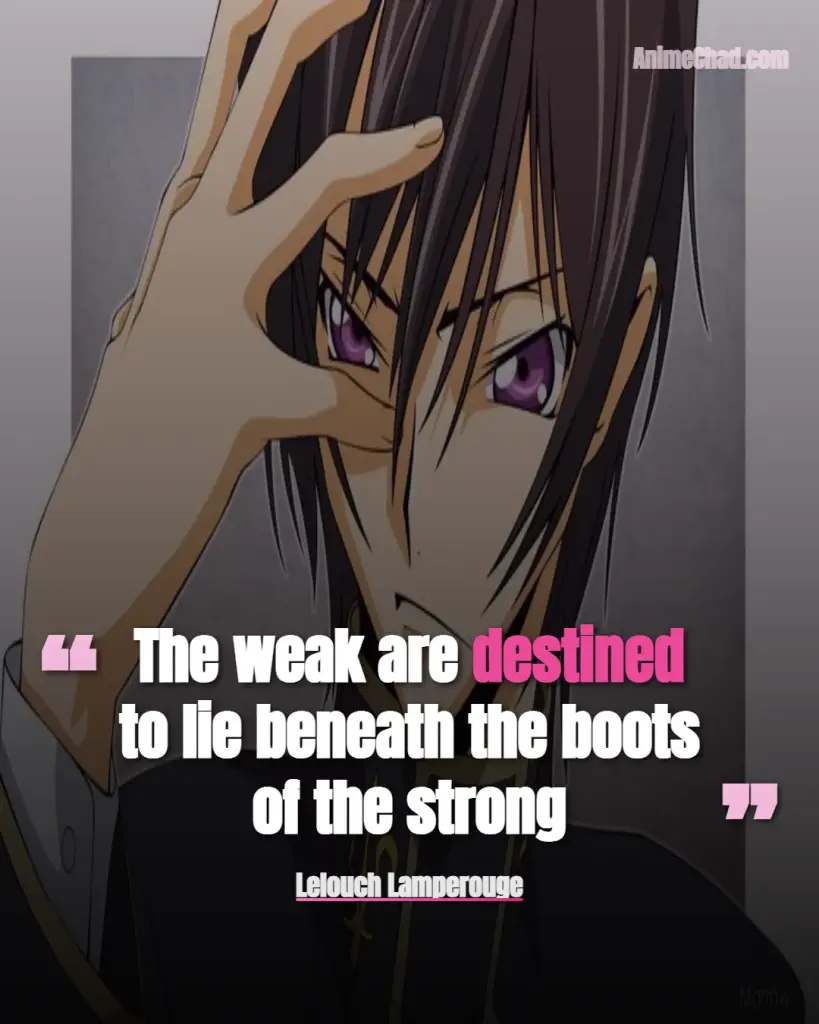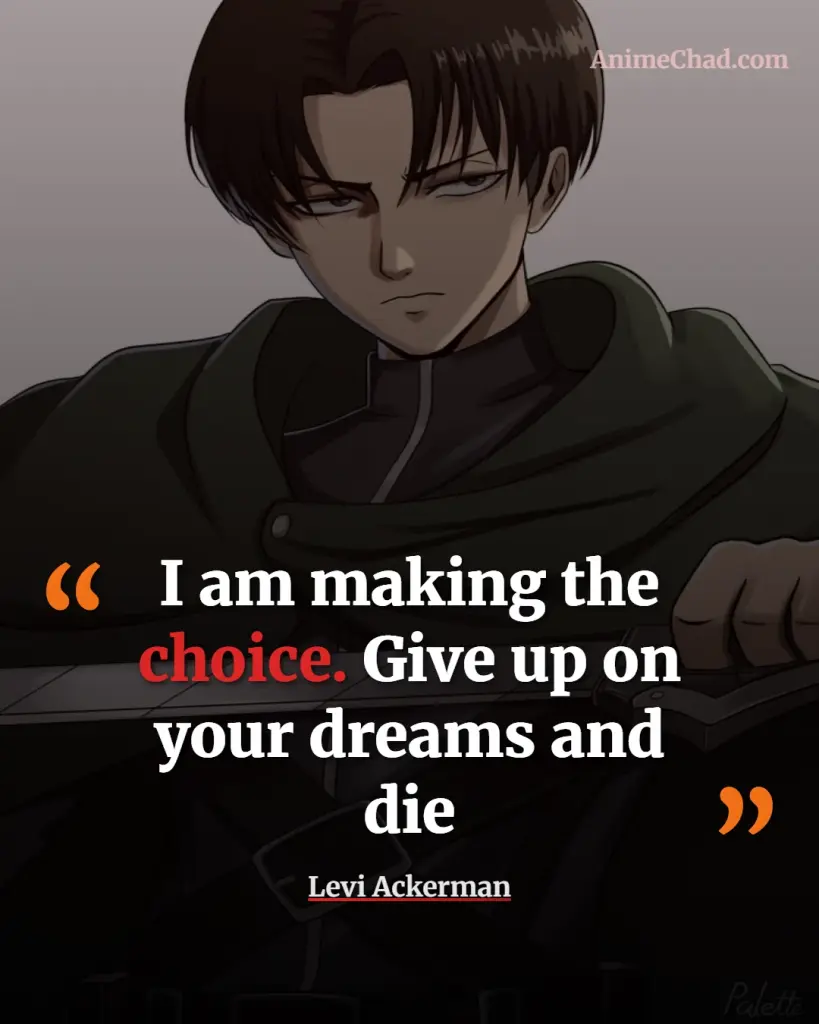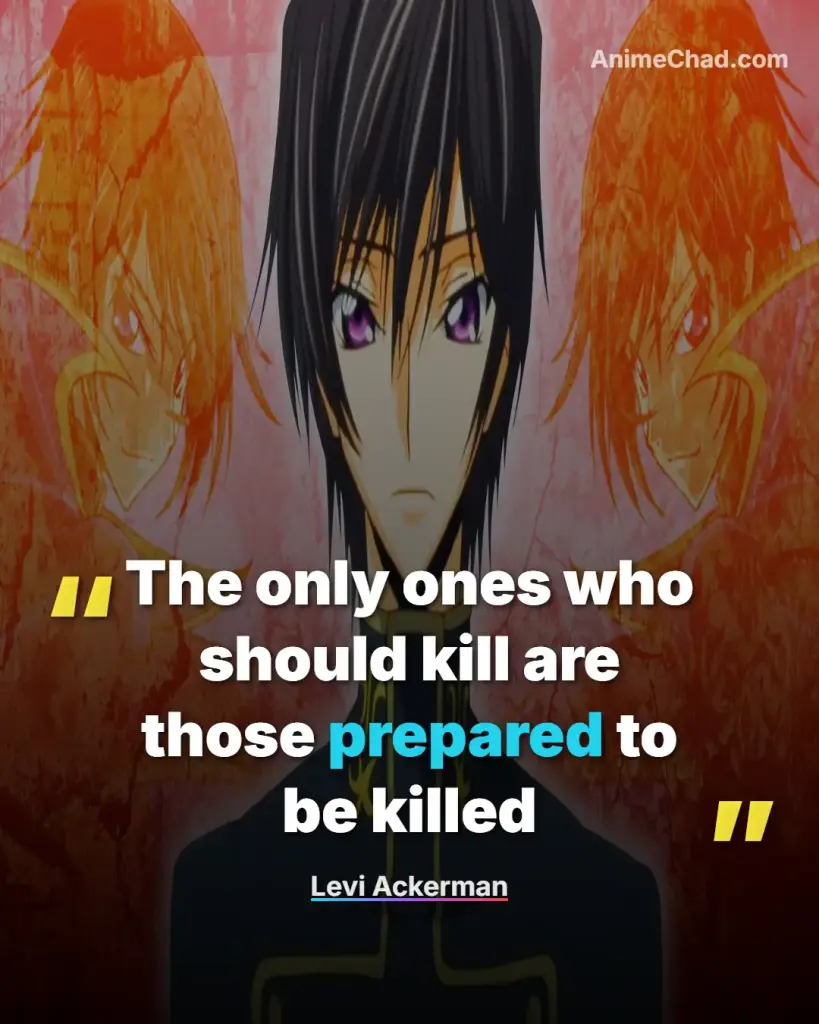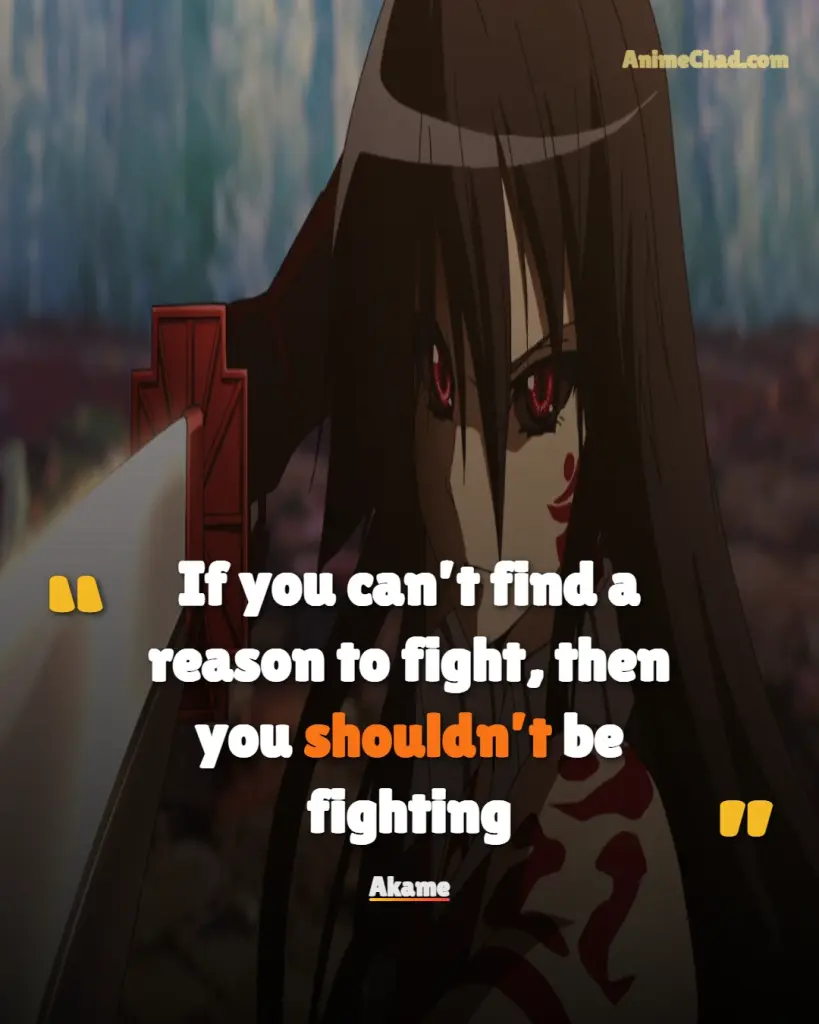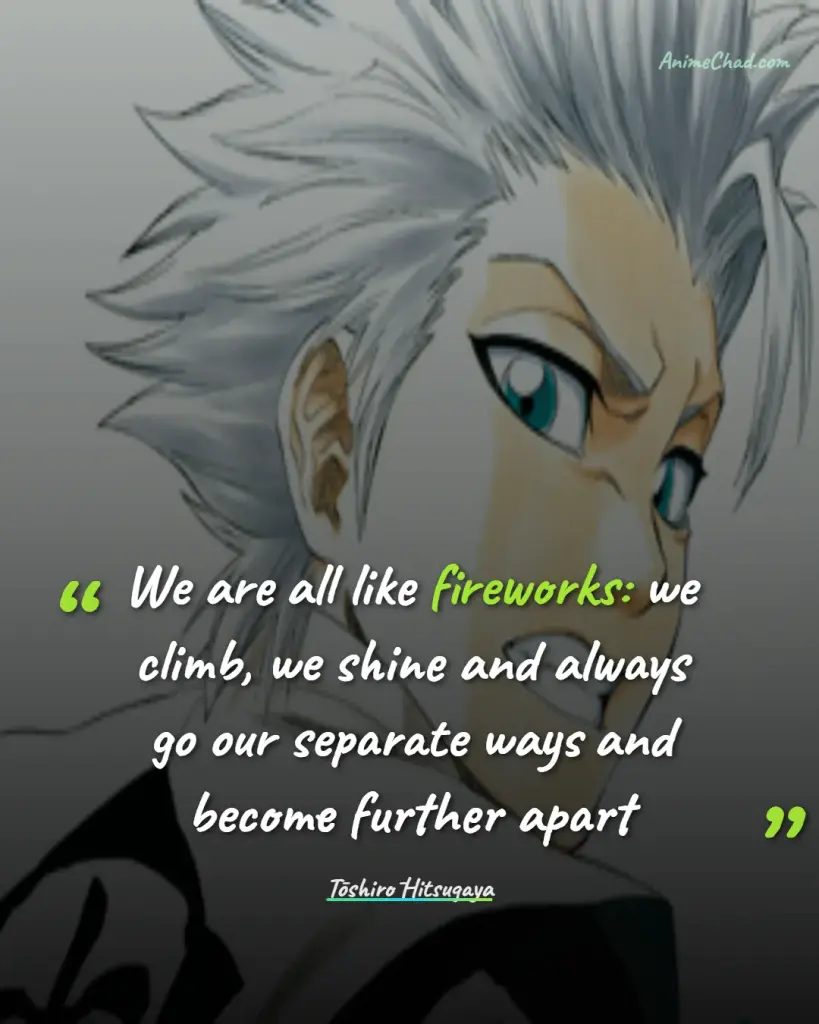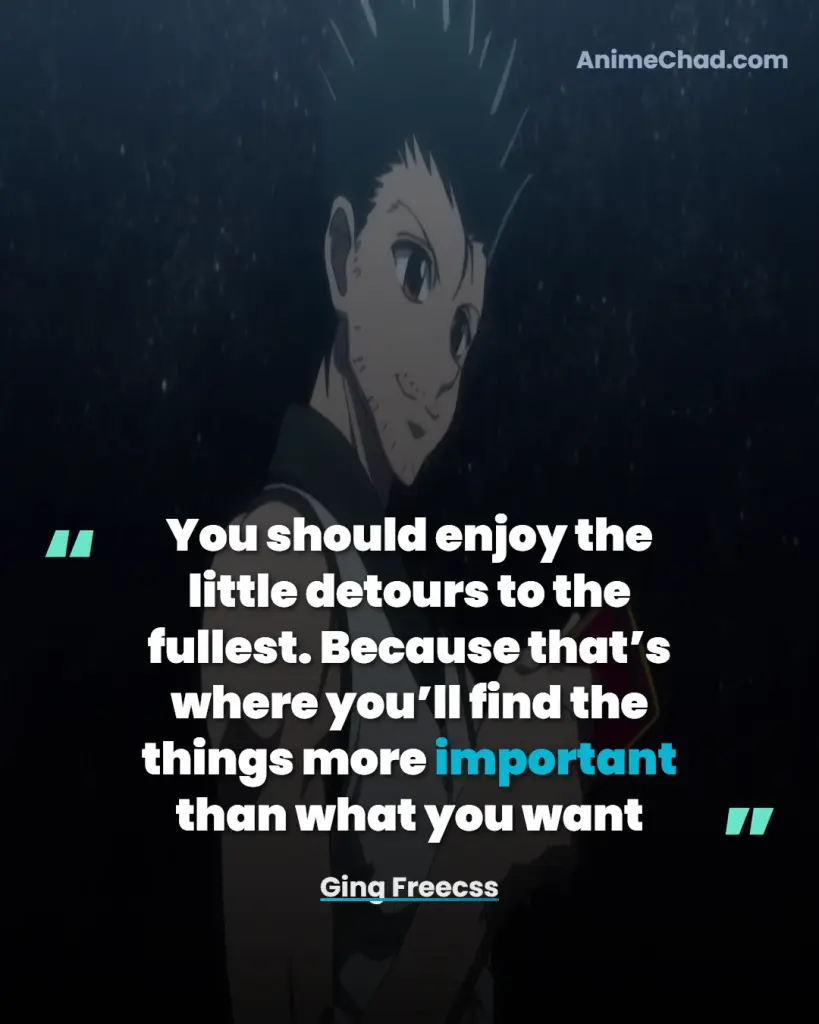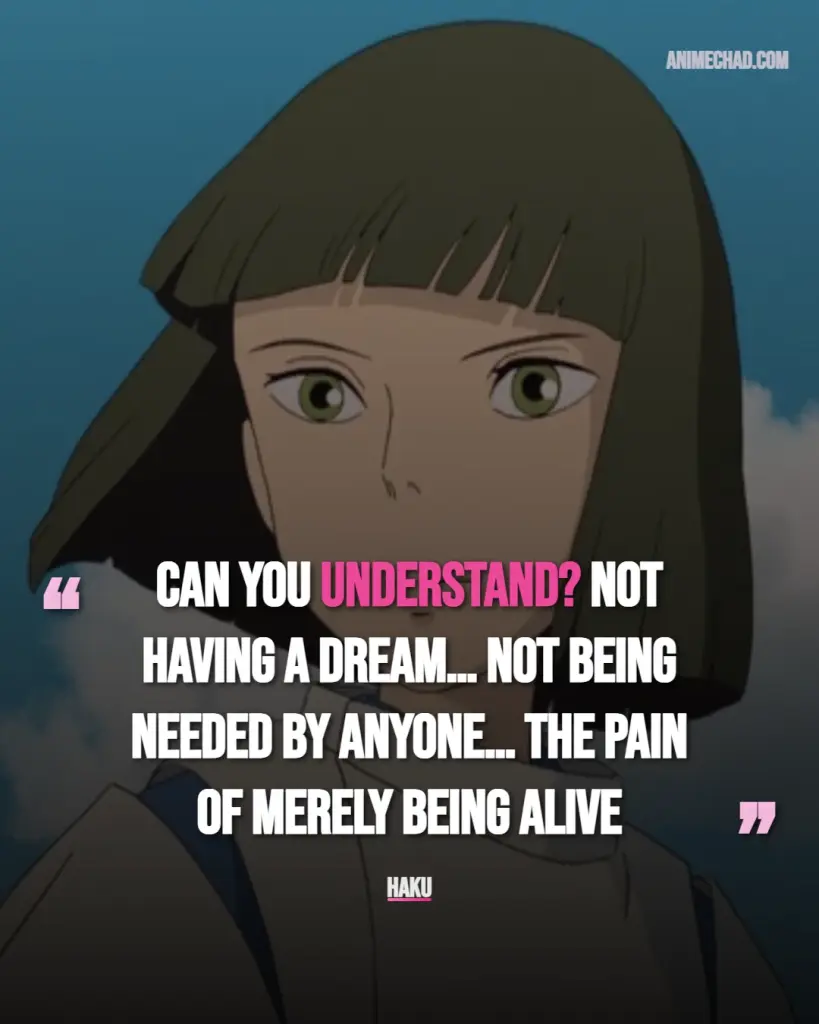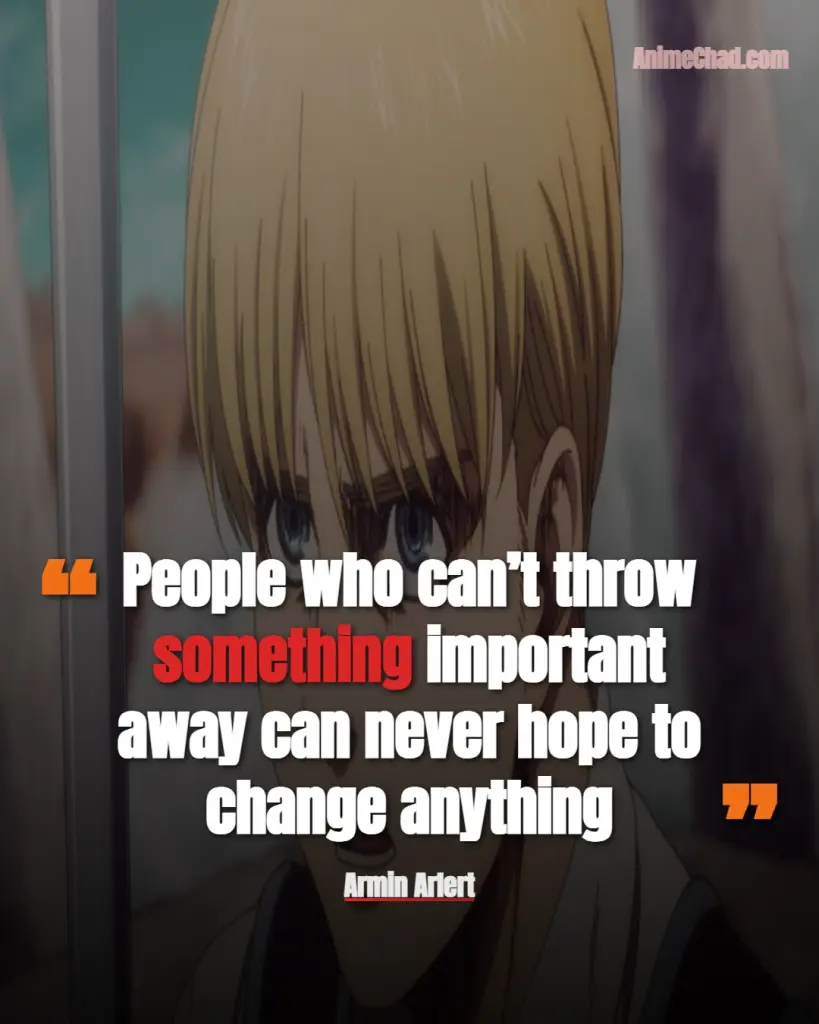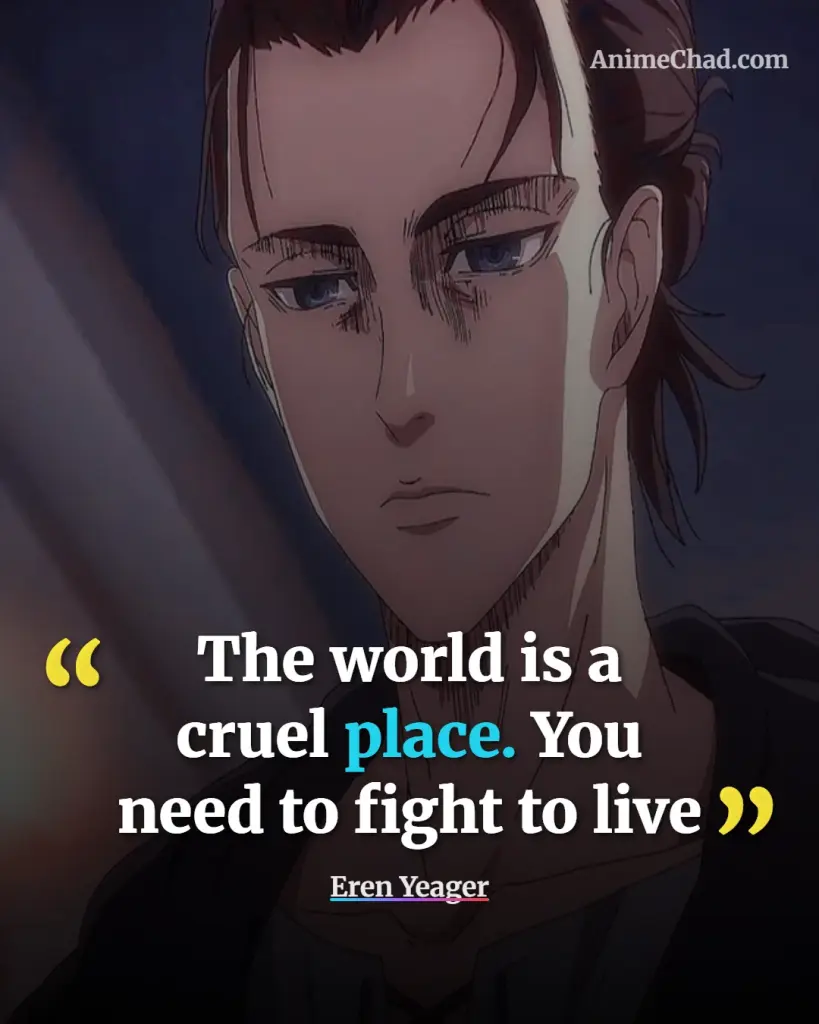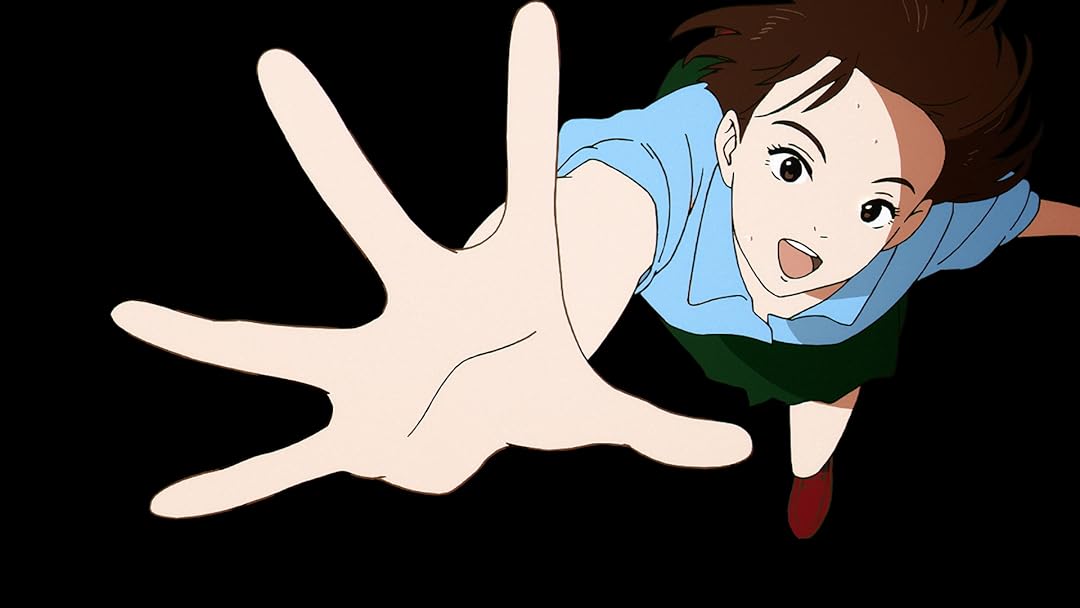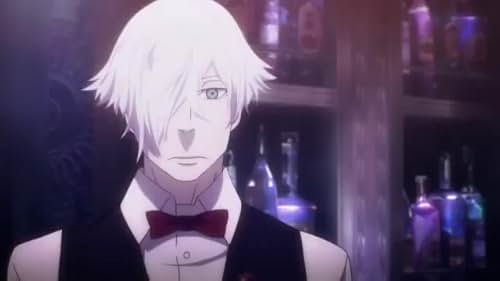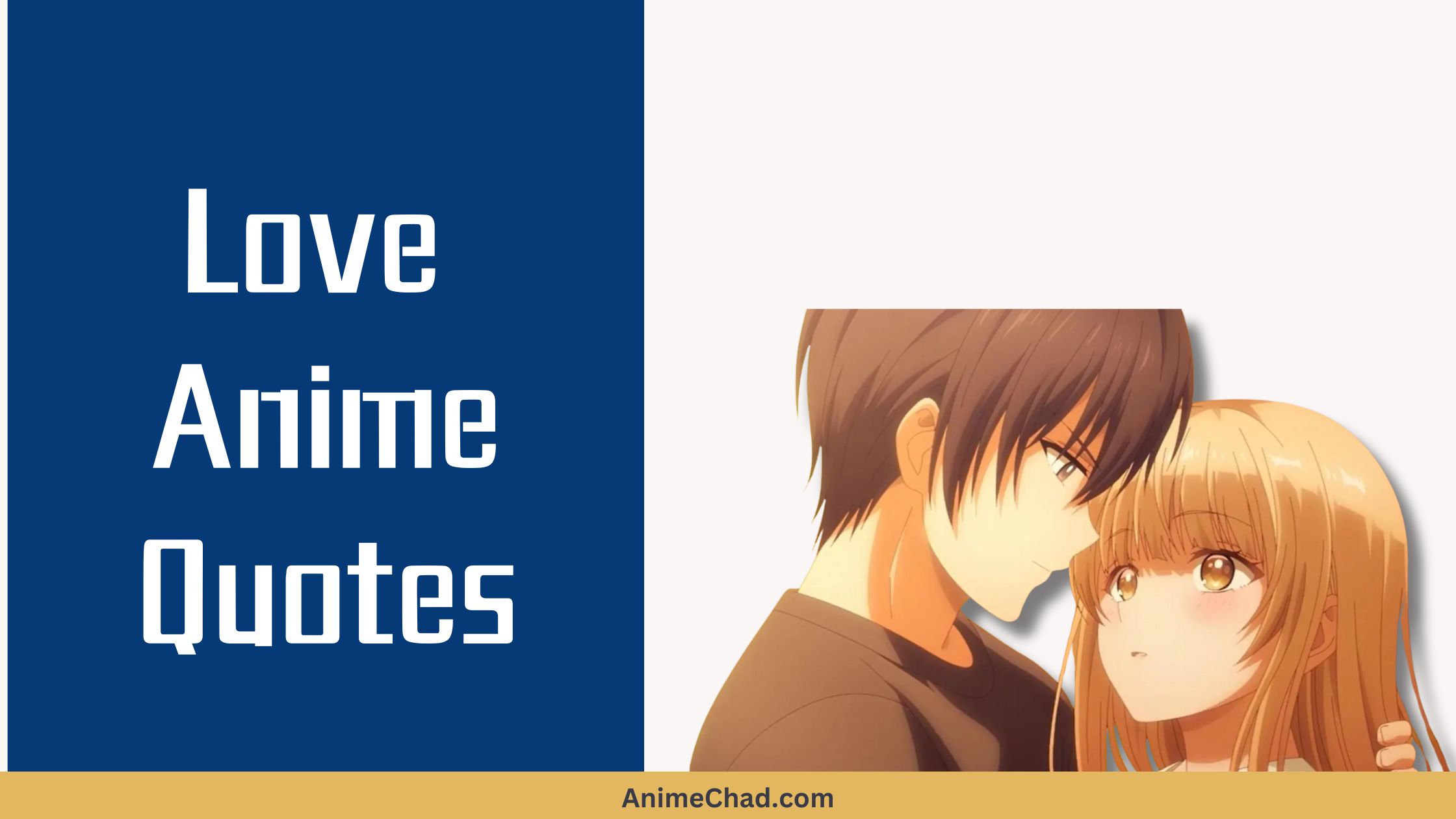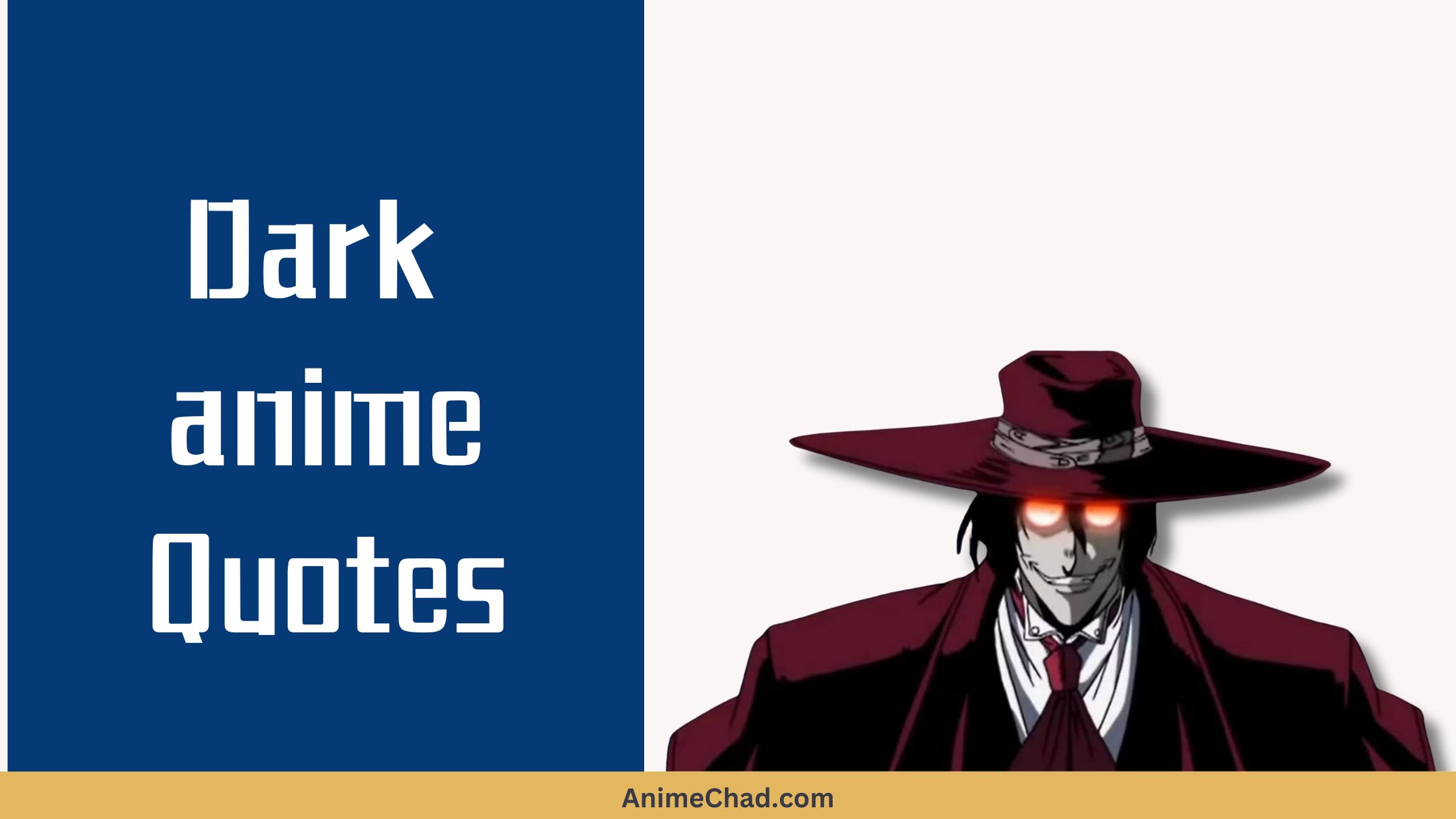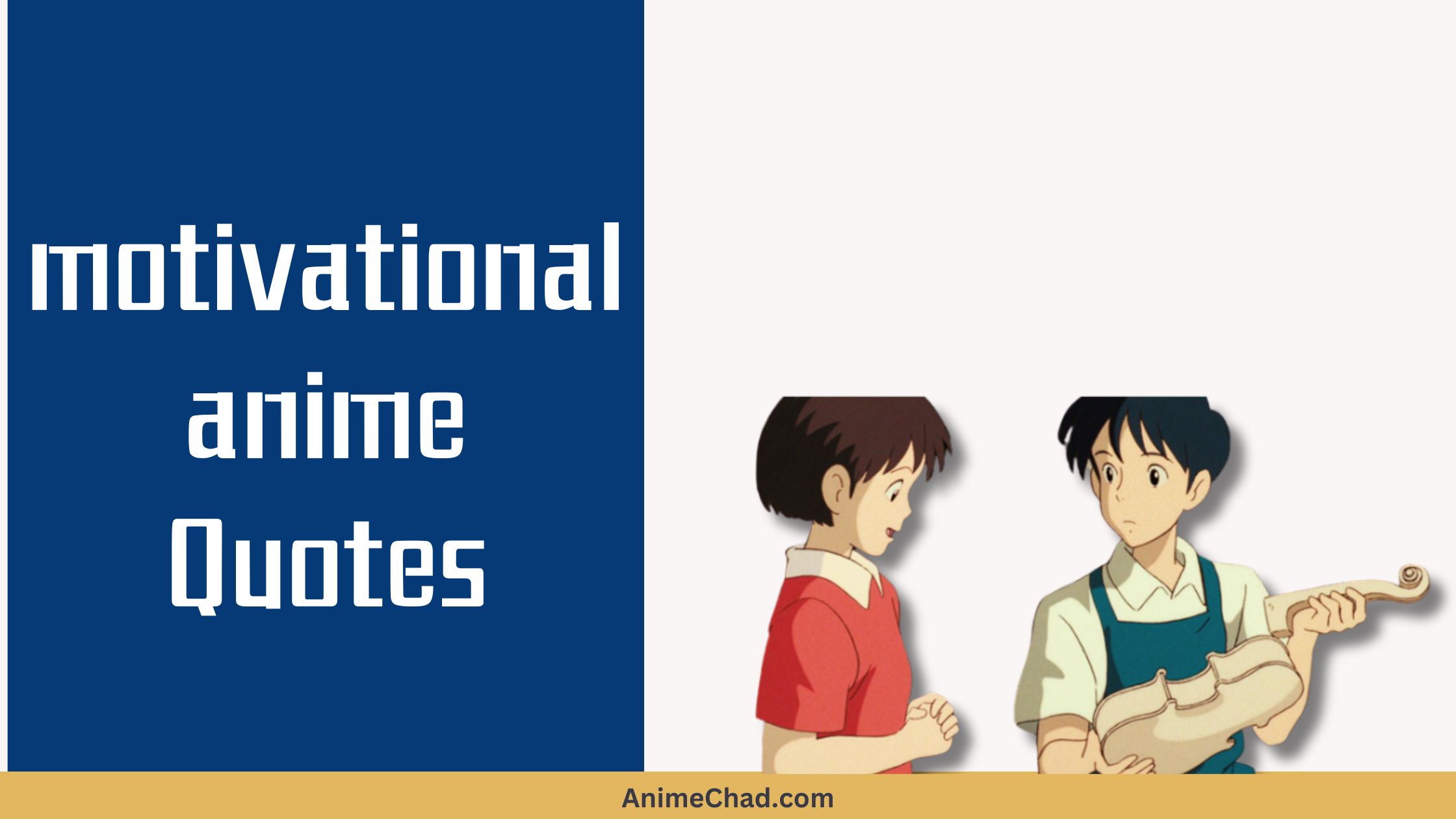Dark anime delves into the shadowy depths of human existence, featuring tormented protagonists and antagonists grappling with themes of mortality, betrayal, and existential despair in series like Death Note, Attack on Titan, and Fullmetal Alchemist. These narratives often blur the lines between good and evil, forcing characters to confront painful truths about society and self.
This curated collection of 25 quotes highlights the genre’s emotional intensity, character evolution, and philosophical undertones, drawing from pivotal moments across various arcs to inspire reflection on life’s darker facets.
I bet dead people are easier to get along with
Episode 23 (The Final Battle)
Crona
Reveals Crona’s tragic isolation and descent into madness, emphasizing themes of loneliness and the allure of death in Soul Eater.
I have no fear of death. It just means dreaming in silence
Episode 26 (The Cowboy’s Farewell)
Vincent Volaju
Vincent’s nihilistic acceptance of mortality underscores his emotional numbness, connecting to Cowboy Bebop’s exploration of regret and fleeting existence.
Humans will even kill other humans if they have truth as an excuse
Episode 12 (The Truth Unveiled)
Sanetoshi Watase
Exposes Watase’s cynical view on morality, highlighting character manipulation and Revolutionary Girl Utena’s broader critique of societal hypocrisy.
Corpses are good; they don’t babble. Only they can understand my feelings
Episode 8 (Silent Whispers)
Sumire Muroto
Sumire’s disturbing confession reflects her psychological trauma, tying into themes of alienation and mental breakdown in Ajin: Demi-Human.
Death isn’t kind. It’s dark and black and as far as you can see, you’re all alone
Episode 9 (Another’s Shadow)
Mei Misaki
Captures Mei’s profound grief, driving her character arc toward guarded resilience in Another’s horror-laden examination of isolation and fate.
Only one thing is equal for all, and that is death
Episode 24 (Monster’s Ballad)
Johan Liebert
Johan’s chilling philosophy propels his villainous growth, linking to Monster’s deep dive into human evil and inevitable mortality.
The real hell is inside the person
Episode 13 (Hell’s Requiem)
Ai Enma
Ai’s introspection reveals her cursed burden, connecting to Hell Girl’s themes of vengeance and internal torment across vengeful arcs.
Living is anxiety and pain. It’s continuing to think, continuing to choose
Episode 7 (Digital Dilemma)
Alcor
Alcor’s existential lament highlights his evolution from detachment to empathy in Devil Survivor 2’s narrative on choice and suffering.
How can you move forward when you keep regretting the past?
Episode 51 (Brothers’ Bond)
Edward Elric
Edward’s realization marks his maturation, tying into Fullmetal Alchemist’s themes of redemption and the cost of ambition.
Reality is cruel, so I’m sure lies are a form of kindness
Episode 8 (My Teen Romantic Comedy SNAFU)
Hachiman Hikigaya
Hachiman’s cynicism evolves into reluctant growth, reflecting the series’ exploration of social facades and emotional barriers.
I’ve made a contract with the devil, so I can’t be friends with a god
Episode 25 (Zero Requiem)
Lelouch Lamperouge
Lelouch’s declaration signifies his sacrificial path, underscoring Code Geass’s themes of power corruption and moral sacrifice.
How can you destroy a monster without becoming one?
Episode 12 (Ghoul’s Awakening)
Ken Kaneki
Kaneki’s internal struggle drives his transformation, connecting to Tokyo Ghoul’s examination of identity loss and monstrous humanity.
Stress makes you bald, but it’s stressful to avoid stress, so you end up stressed out anyway
Episode 15 (Gintama’s Folly)
Gintoki Sakata
Gintoki’s humorous yet dark insight reveals his coping mechanism, linking to Gintama’s blend of comedy and underlying despair.
Just because you’re correct doesn’t mean you’re right
Episode 10 (Cursed Mark)
Orochimaru
Orochimaru’s twisted logic highlights his villainous depth, tying into Naruto’s themes of ethics and power across shinobi wars.
The world isn’t perfect, but it’s there for us, doing the best it can
Episode 64 (The Other Side of the Gate)
Riza Hawkeye
Hawkeye’s resilience amid trauma fosters her growth, reflecting Fullmetal Alchemist’s hope amid alchemical horrors.
The opposite of love is not hate. It’s indifference
Episode 15 (Jujutsu Kaisen’s Curse)
Junpei Yoshino
Junpei’s bitterness evolves into tragic realization, connecting to Jujutsu Kaisen’s exploration of emotional voids and cursed energy.
The weak are destined to lie beneath the boots of the strong
Episode 5 (Rebellion’s Dawn)
Lelouch Lamperouge
Lelouch’s ruthless worldview propels his revolution, underscoring Code Geass’s power dynamics and anti-hero development.
I am making the choice. Give up on your dreams and die
Episode 33 (Beast Titan Assault)
Levi Ackerman
Levi’s grim command reveals his hardened leadership, tying into Attack on Titan’s themes of sacrifice in humanity’s survival.
The only ones who should kill are those prepared to be killed
Episode 25 (Code Geass Climax)
Lelouch Lamperouge
Lelouch’s philosophy marks his ethical evolution, linking to the series’ cycle of violence and redemption arcs.
If you can’t find a reason to fight, then you shouldn’t be fighting
Episode 24 (Akame’s Resolve)
Akame
Akame’s conviction drives her assassin’s path, reflecting Akame ga Kill!’s brutal commentary on corruption and moral purpose.
We are all like fireworks: we climb, we shine and always go our separate ways and become further apart
Episode 200 (Bleach’s Fade)
Tōshirō Hitsugaya
Hitsugaya’s reflection on transience highlights his maturity, connecting to Bleach’s themes of loss across soul reaper battles.
You should enjoy the little detours to the fullest. Because that’s where you’ll find the things more important than what you want
Episode 121 (Hunter x Hunter’s Journey)
Ging Freecss
Ging’s wisdom influences Gon’s growth, tying into the series’ exploration of adventure and hidden life lessons.
Can you understand? Not having a dream… not being needed by anyone… The pain of merely being alive
Episode 48 (Naruto’s Path)
Haku
Haku’s despair reveals his tragic loyalty, linking to Naruto’s early arcs on purpose and emotional bonds.
People who can’t throw something important away can never hope to change anything
Episode 27 (Fullmetal Alchemist’s Sacrifice)
Armin Arlert
Armin’s insight propels his strategic evolution, reflecting Attack on Titan’s themes of transformation through loss.
The world is a cruel place. You need to fight to live
Episode 5 (Attack on Titan’s Fall)
Eren Yeager
Eren’s early rage evolves into complex ideology, underscoring the series’ brutal survival narrative across walled conflicts.
